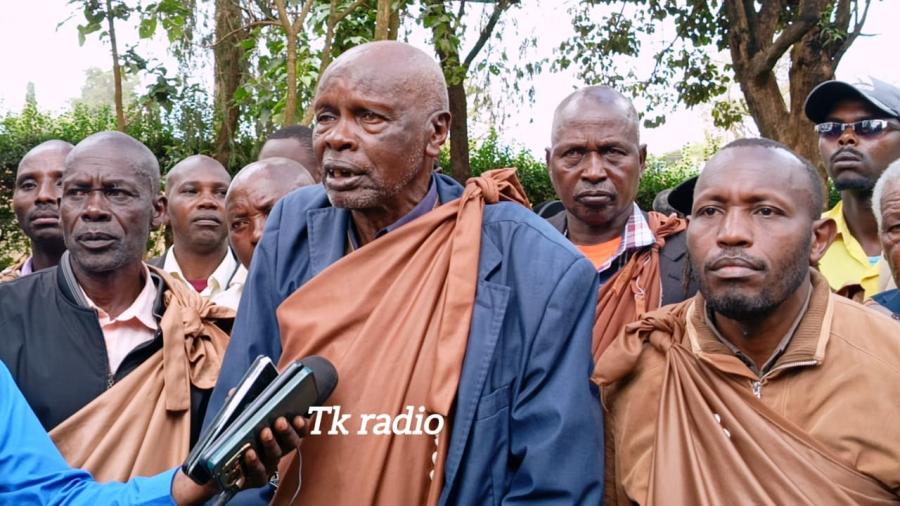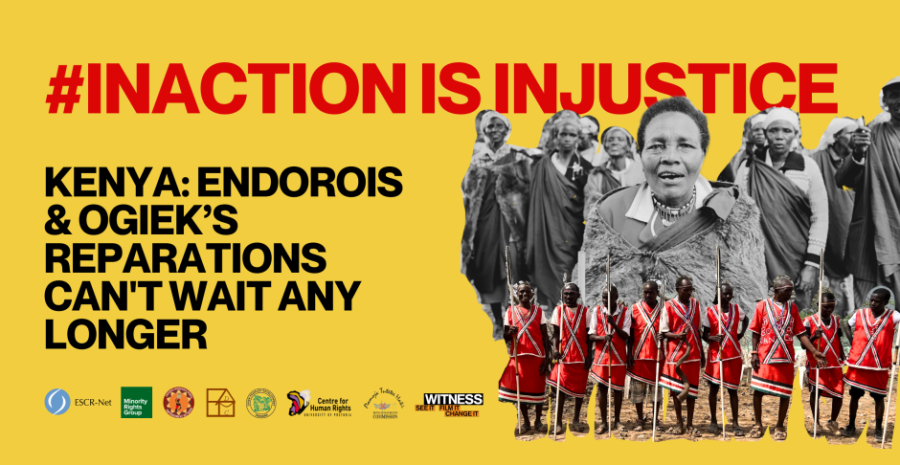Off the northern coast of Kenya is the island of Pate, and just south of it the island of Lamu. These islands are inhabited by Swahili-speaking people of Arabic descent and Islamic faith. Lamu has always attracted more attention than Pate - from colonialists and tourists alike. So when I traveled to these islands I opted to stay in Pate to gather information from fishermen in the villages of Faza and Kizingitine.
To get an impression of what this part of East Africa looks like one must think in terms of flat expanses: mudflats, salt marshes, mangrove swamps, beaches, water and low shrubbery. Lamu town, for instance, is surrounded by Lamu shamba (garden), an area of four to five square miles of porous sand densely packed with coconut palms and, to the south-east, stately mango trees. Immediately to the north there are mudflats, swamps and shrubs under which are buried the remains of Weyuni, an ancient forerunner of the present village. The sea is encroaching, eating slowly away at the northern rim of the island.
Only two footpaths traverse the island of Pate: one to the village of Kizingitine where many shipwrights practice their trade, the other to a decrepit shrinking village based on sub-subsistence farming and fishing. Whereas Lamu is now trained by a sprawling, prominent hotel, Pate rarely is visited by tourists. The Lamu fishing industry has become highly commercialized due to the influx of tourists and distant markets (thanks to refrigeration, motorized vessels and an airport). By contrast, the fishermen of Pate seldom sell excess fish to middlemen from the mainland and the extent of technological advance does not go far beyond the introduction of nylon nets 12 years ago.
The fisherman of Pate is the core of his community. Without the fishing industry, villages such as Faza and Kizingitine would not have been settled, houses would not have been built, children may not have been born. Based on his trade, the community can grown and, with luck, prosper.
Despite the essential role the fisherman plays, he has minimal contact with the community. When he is not at sea, he spends his time selling and trading fish, resting, readying his dhow and preparing the nets for his next voyage out to sea. Outside the company of fellow fishermen, he makes little or no attempt at social interaction. Mohaamad Yassir Banadi's testimony illustrates how isolated his life is from the rest of the community: he eats, relaxes, shares stories and works with other fishermen. He spends most of his time aboard the dhow where, because of the physical intimacy of the living conditions, a bond of companionship and brotherhood develops between fellow crewmates which is comparable to any relationship established on land. This bond dominates and gives security to the fisherman's life.
According to Muslim tradition, significant religious power is imparted to the dhow. Each ship carries a hirizi (amulet) embedded its bow, underneath he foredeck. As the bearer of a hirzi, the vessel becomes more than an instrument of trade; it is regarded as a sacred object.
Although their occupation is protected by Allah, and their instrument of trade is considered sacred in Muslim society, distinctions in religious practice further separate fishermen from the rest of the local community. All but one of the crews I encountered in Faza and Lamu smoked bhang (marijuana), chewed mirah (the local amphetamine) and even drank - habits strongly condemned by Islamic ethical codes.
The aberrant moral behavior and maladroit social skills of the fishermen might be expected to cause a rift in the community. By contrast, the fisherman is highly regarded, due in part to his economic contribution to the village in which he resides, but also based on the mystical and ritual role of seafaring in the Muslim maritime community.
The Muslim maritime community is an integration of sea and ship, even in the design of non maritime institutions such as initiation and mortuary rites. The ceremony surrounding the launching of a ship is a rite of passage. The passing of responsibility from the shipwright to the captain requires three things: a ritual, an auspicious occasion favorable to Allah and a sacrificial victim (nowadays a goat or two). The elaboration of myths concerning the sea; the frequent occurrence of maritime patron saints; the leisure hours spent near the water; the crowds gathered at launchings, arrivals and departures of boats; and the attitude of respect, even reverence, bestowed on fishermen are indicative of the power of the sea to the entire community.
Testimony to a life at sea
My name is Mohaamad Yassir Banadi. I am a fisherman. I live here in Faza. I have three children. I have already started to teach my firstborn to fish. He is seven.
I will begin from when I was a child, as you asked. Each morning I remember the fishermen as they poled their dhows to the shoreline. Each morning I ran into the water to greet them. It was always my father's dhow that brought the most fish. Proudly I carried the biggest fish to land. Of course I was proud, these fish were caught by my father, Ali Mdasir Banadi.
By the time I was twelve years I saw the fishermen differently. I could sail a steady course in my father's dhow by then, and I was fishing two or three times each week. My people count on what the fishermen bring home. Without the fish my people of Faza would live on maize, cassava and coconuts alone. We are crucial to the survival of the community. Even at twelve years I knew this. I also knew we spent little time in our community. Little time with our families, little time in the mosques, little time at the weddings. Mostly time with our crew. For 20, sometimes 40 hours we fish. Then we return to Faza for four. Whether it is because we spend so much time away from our households, or so much time together at sea, we have become inseparable. We are brothers. On land we sit together - laughing, smoking, resting. Some days I see members of my boat sleeping side by side on the beach...next to the sea. It is difficult to understand, difficult to explain. But they feed each other after all, they work together, they spend most of the day and night talking and joking with each other - why them should they not sleep together when they are given a chance to sleep?
Four nights ago I went to sea alone. The moon was almost full and the air smelled dry. The tenga fish was running three miles offshore, I had heard. I don't go line fishing often any more, but the tenga fish is worth catching; half the length of the sternpost I've seen them. That will bring you enough fish to feed Faza for a month.
The moon was rising and the sun was setting as I poled the Tawakal out, away from Faza. When we reached the Siyu channel the wind blew strong from Manda Bay. It meant I could run with the wind all the way out to the sound. The sail of the Tawakal billowed for a minute, then sprung to life as I straightened the rudder. Because my course was a straight one and the weather seemed fine, I draped myself over the rudder, wrapped the mainsail sheet around my wrist and slept.
A few hours later I awoke, Rain had begun to fall and wind was whipping against my face. I was still a few hours' sail from the channel but I threw in my two lines, lashing them to pins on the gunwales. There was not much chance for tenga here; they are fish of the deeper seas. I gathered a few yards of burlap around my shoulders and Tawakal and I pushed on. Against the rains, the hull creaking in the growing swells.
The moon had disappeared and the waters were black. I sat. An hour and nothing. Another hour. The wind blew harder and I reefed the sail completely. We rocked unsteadily in the choppy whitecaps. I sat in the blackness, feeling the lines, waiting for a change. Still nothing. Then, as I hauled one line in to change the bait, there was a violent tug. Instinctively my hands wrapped around the line. It jerked hard, more violently than the first time. The line cut through my callouses, deep into my palms. You can't play with fish in this area, letting the line in and out. The fish swim down to the sea bed and the line will be cut on the coral. You just keep pulling.
I pulled. The line ripped my hands, the Tawakal rocked dangerously. The strength of the fish and force of the wind were almost more than she could handle. Water splashed into my palms, the salt slipped deep into my cuts. I cried to Allah and held on. I held on for an hour. Sometimes the fish would stop its battle and I could pull the line from my callouses. The waters from the rains and the waves had filled the bottom of the hull. I couldn't bail for fear of losing the fish. I called to Allah again, bidding him to recognize the Tawakal's hirizi. The hirizi - how many times had I looked to the prow and prayed? Prayed to Allah, to the prophet Mohammad, prayed to the hirizi - asking each for protection, for safety. My father's brother carved the hirizi in the Tawakal. I cherish it. It is the strength of the dhow. Each year I oil it with coconut and fish oil. Each year I take it to the mosque and the preacher bless it. And each year I sail safely, I fish safely. Some of the fishermen don't even bother with the hirizi any more: "It's just a pierce of wood," they say. But they are the young ones, they must learn. Some of them don't even carve oculi (symbolic eyes) for their dhows: "That's what fishermen did in the old days, of course boats don't see," they exclaim. They will learn; I thought the same thing when I was young.
Three years ago my brother launched the Kisiwani. She is a 15-ton dhow. At the ceremony he sacrificed five goats and the feasting went on all night. The hirizi was in the bows, the oculi were just under the stake, where they belong. We praised Allah all night and as the tide came in we launched the Kisiwani - she was blessed, she had Allah's protection. Three years have gone by and no harm has come to that dhow, no harm has come to its crew. A man cannot explain to his son the powers of the hirizi, and the powers of the dhow. His son must learn for himself. As I have learned time and time again. As I have learned time and time again. As I learned when the Tawakal brought me safely home three days ago.
Perhaps due to the paucity of external technological and economic influences, the fishing industry in Faza and Kizingitine remains integrated with spirituality and superstition. Perhaps due to the fact that technological advance in Faza has been greeted with reluctance, these people have managed to maintain comparatively "traditional" fishing practices. In the balance, this traditionalism - which may seem quaint and charming to an outside observer - is accompanied by increasing poverty. Twenty miles to the south, on the island of Lamu, not only has life undergone cultural change but the people are becoming wealthier, living through cholera epidemics, eating healthier foods and integrating themselves into the capitalist economy of Kenya.
Article copyright Cultural Survival, Inc.



